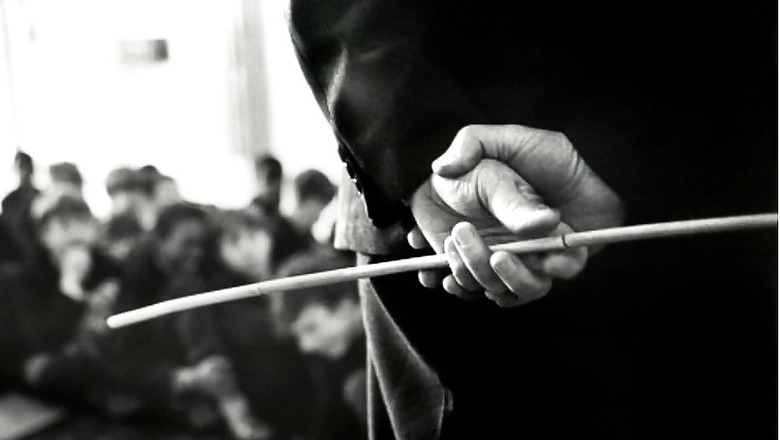
views
New Delhi: Grappling with poverty, children from disadvantaged backgrounds face humiliation in schools by way of corporal punishment. A report called ‘Choking Childhood’, compiled by Gurugram-based NGO ‘Agrasar’, throws light to the apathy shown towards children from underprivileged backgrounds by schools. It has turned the spotlight on how disadvantaged children bear the brunt of corporal punishment in schools in Gurugram.
Highlights of the report
As per the report, almost 80% of the children interviewed reported experiencing corporal punishment, in some schools, 88% students interviewed reported that they were beaten routinely multiple times in a week, while in other schools, around 30% students ‘only’ experience corporal punishment multiple times. “That means, on average almost half of disadvantaged children interviewed were beaten by teachers multiple times in a week,” the report highlights.
Corporal punishment is meted out in worst of forms – it is not just about being hit on the knuckles, or being caned, children also suffer from other brutal forms of violence. “Teachers punch children in the face until they pass out, bang their heads against the wall, or lock them up in insulated rooms so that nobody can hear the child scream,” the report says. Children reported that some teachers verbally abuse children, whose families have migrated from other states, for their ‘bad upbringing’ and blame them for their parents’ poverty and illiteracy.
Apathy of government schools
As per the report, government schools are often characterised by an environment that foster violence against children, instead of protecting them from it. Suffering from insufficient infrastructure and challenging working conditions, teachers succumb to immense frustration and react by punishing children. There are no frameworks in place to enforce the ban on corporal punishment in schools. Teachers face no retribution for assaulting, harassing and abusing children.
Corporal punishment and mental harassment of students by teachers is banned in India by at least fifteen legal and regulatory policies, notably the UN Child Rights Convention, of which India is a signatory since 1992, and the Right of Children to Free and Compulsory Education (RTE) Act 2009.
However, despite a legal ban, corporal punishment in schools remain pervasive. According to government data, at least 65% of children are physically punished by teachers. If mental harassment is taken into consideration, the National Commission for Protection of Child Rights found that 99.9% of children experience harassment at school.
The report presents the challenging environment in which teachers are expected to work, with infrastructure that is far from conducive, the pressure of managing oversized classes, expectations on them to multi-task and the absence of, a professional code of conduct, training and hand-holding on techniques for classroom management, and reinforcement of positive behavior in the classroom.
Fallout at home
The sufferings of children don’t end after they leave for the day. As per the report, 70% of children interviewed, reported that parents beat them when they find out that the child was punished by teachers at school. “More than 70% of the parents who were interviewed also agreed that they beat children, and show no remorse as they believe that it’s for their good. That’s why only 12% of children interviewed, reported that they could confide in their parents about being punished at school,” the report by Agrasar says. When children stop sharing negative experiences with their parents, it adds to the ‘culture of silence’ around violence and makes them vulnerable to fall prey to other forms of abuse.
This leads to broken relationships with teachers and parents.
Next step
Children suffering abuse, makes them internalise violence as acceptable social behaviour and are more likely to become violent adolescents and adults.
Agrasar has launched an initiative called “Kaagaz Ki Kashti” to work towards eliminating corporal punishment from schools in India. For this a coalition of stakeholders comprising government machinery, teachers, parents, children and community members, has been formed to educate them about corporal punishment and its negative effects. The initiative also enables teachers and parents to adopt non-violent positive methods of engagement with children.


















Comments
0 comment